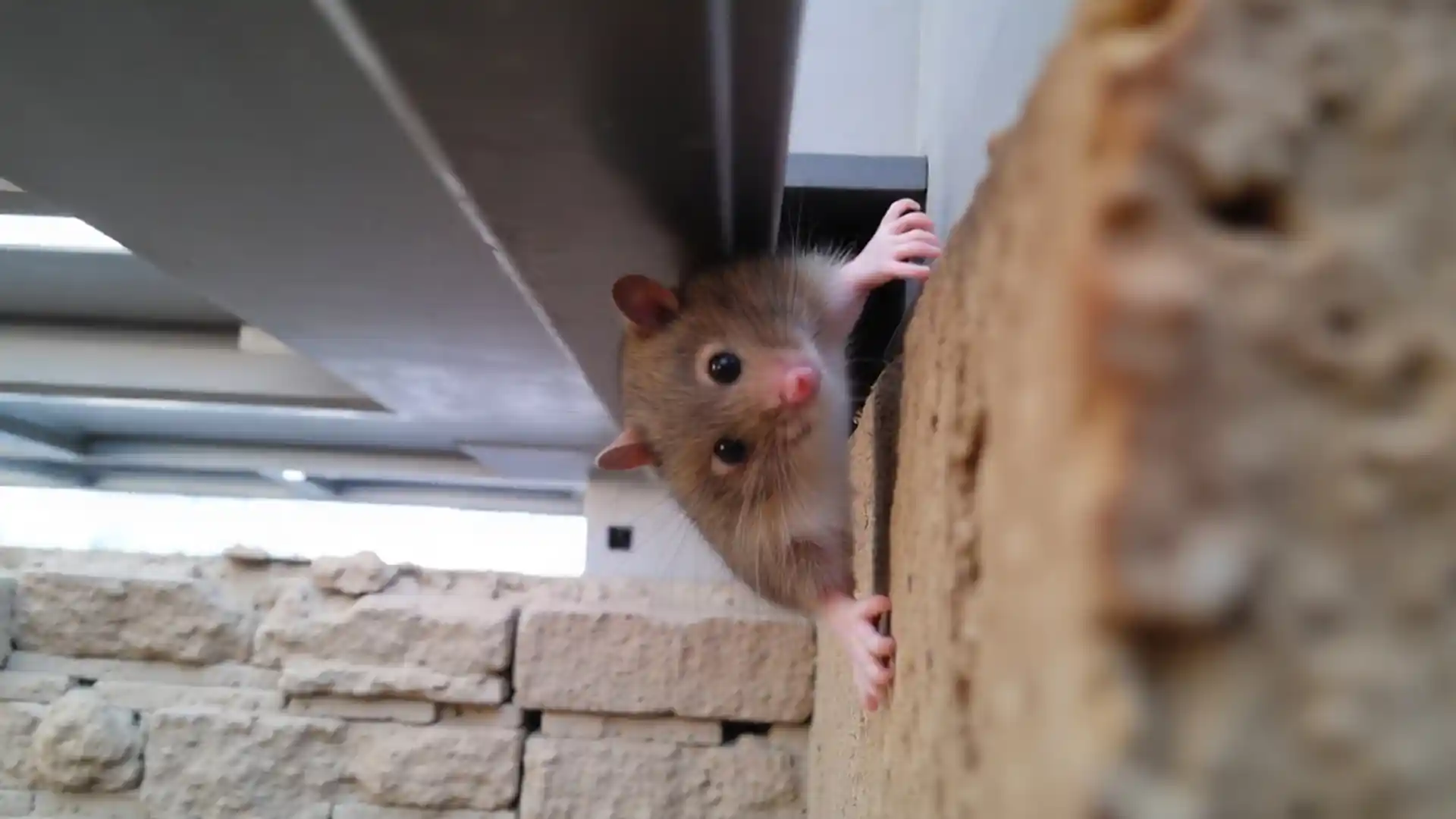Dealing with Mice in a Hoarder’s Home: Step-by-Step Cleaning and Safety Tips
Hoarding situations can create the perfect environment for pest infestations, especially mice and rodents. Piles of clutter, stacks of paper, and hidden food waste provide these pests with everything they need — shelter, nesting material, and an endless food supply. For families or professionals facing such challenges, it’s not just about cleaning — it’s about restoring a safe, livable space.
When tackling a hoarder’s home infested with rodents, safety, structure, and professional expertise are key. In Waterbury, CT, ServiceMaster Albino stands out as a trusted leader in cleaning and disaster restoration, helping homeowners reclaim their environments with compassion and thoroughness.
Why Rodents Thrive in Hoarder Homes
Rodents are opportunistic and resourceful creatures. In hoarded environments, they find:
- Abundant Hiding Places: Stacks of boxes, newspapers, and trash provide ideal nesting areas.
- Readily Available Food Sources: Open food, unsealed containers, and forgotten leftovers attract mice almost instantly.
- Limited Human Disturbance: Hoarder homes often have areas that go untouched for months or even years, allowing rodent populations to multiply undisturbed.
Left unchecked, rodents can cause serious structural damage, chew through wiring, and contaminate surfaces with droppings that carry diseases like hantavirus and salmonella.
Step 1: Assess the Situation
Before starting any cleanup, assess the extent of both the hoarding and the infestation. Look for:
- Rodent droppings (small, dark pellets)
- Chewed materials or gnaw marks
- Nests made of shredded paper or fabric
- Musty odors or stains from urine
This assessment helps determine if pest control intervention is required before beginning cleanup. In most cases, professional pest management should happen before decluttering starts to prevent rodents from spreading during the process.
Step 2: Ensure Safety First
Cleaning a hoarder’s home — especially one with a rodent infestation — poses significant health risks. Safety precautions are non-negotiable:
- Wear Protective Gear: Use gloves, N95 respirators or better, long-sleeved clothing, and safety goggles.
- Avoid Sweeping or Vacuuming Droppings: Dry sweeping can release harmful airborne particles. Instead, spray droppings with a disinfectant and carefully wipe with disposable towels.
- Ventilate the Area: Open windows to allow fresh air circulation and reduce exposure to airborne contaminants.
If contamination appears extensive, contact professionals like ServiceMaster Albino in Waterbury, CT, who are trained to handle biohazard and rodent contamination safely and efficiently.
Step 3: Declutter Methodically
Hoarding cleanup can be emotionally overwhelming for the resident, so proceed with sensitivity and structure. Work room by room, sorting items into categories:
- Keep: Essential, clean, and safe items.
- Donate: Items in good condition but no longer needed.
- Dispose: Contaminated, damaged, or unnecessary items.
Always double-bag any items affected by rodent waste. Use sturdy trash bags and seal them before disposal to prevent the spread of contaminants. Professional teams like ServiceMaster Albino have specialized training to manage this process efficiently while maintaining safety and compassion for homeowners.
Step 4: Deep Clean and Disinfect
Once clutter and debris are removed, it’s time for a comprehensive deep cleaning. This step is crucial for eliminating bacteria, viruses, and lingering odors.
- Disinfect Surfaces Thoroughly: Use EPA-approved disinfectants on all hard surfaces, including walls, floors, and countertops.
- Clean Fabrics Safely: Wash clothing, linens, and curtains in hot water. If items are too contaminated, dispose of them safely.
- Address Structural Damage: Rodents often chew through insulation, drywall, and wires. Inspect for damage that might require repair.
This is where professional help makes a major difference. ServiceMaster Albino’s team in Waterbury, CT uses advanced cleaning technology and proven restoration techniques to restore homes to safe, healthy conditions.
Step 5: Restore and Sanitize Air Quality
Even after visible cleaning, airborne contaminants can linger. Air purification and odor removal are essential final steps.
- Use HEPA Air Filtration Systems: These remove lingering allergens, dander, and dust stirred up during cleaning.
- Deodorize Effectively: Professional-grade ozone or hydroxyl generators can neutralize odors caused by rodents and waste.
- Inspect HVAC Systems: Duct cleaning ensures no droppings or nesting materials remain in ventilation systems.
ServiceMaster Albino specializes in comprehensive odor removal and air quality restoration — a critical part of reclaiming a safe, fresh-smelling home environment.
Step 6: Implement Preventive Measures
Once the home is restored, it’s essential to prevent future infestations:
- Seal Entry Points: Check for holes or cracks in walls, floors, and around pipes — mice can squeeze through openings as small as a dime.
- Maintain Cleanliness: Regular cleaning routines and clutter reduction deter rodents from returning.
- Store Food Properly: Keep food in airtight containers and promptly dispose of garbage.
- Ongoing Professional Maintenance: Scheduling regular inspections or cleanings with professionals like ServiceMaster Albino can ensure long-term protection.
When to Call the Professionals
Hoarding cleanup and rodent infestation removal are not typical DIY tasks. They require specialized equipment, safety protocols, and sensitivity to the emotional aspects involved.
If you’re in Waterbury, CT, and facing a challenging cleanup, ServiceMaster Albino provides compassionate, efficient, and professional services. Their trained technicians handle everything — from pest-related sanitation to full restoration — helping families and property owners reclaim their homes safely and respectfully.
Final Thoughts
Dealing with mice and rodents in a hoarder’s home is as much about health and safety as it is about compassion and patience. The process involves careful planning, thorough cleaning, and ongoing preventive measures. With professional help from ServiceMaster Albino, residents can confidently take steps toward a clean, safe, and restored living space — free from pests and filled with renewed peace of mind.
FAQ
1. Why are rodent infestations common in hoarder homes?
Rodent infestations are common in hoarder homes because clutter offers them abundant hiding places, nesting material, and food sources. Stacks of paper, clothing, and unsealed food containers provide the perfect environment for mice and rats to thrive undisturbed. Over time, these conditions allow the rodent population to grow exponentially.
2. Is it safe to clean up rodent droppings myself?
It’s not recommended to clean rodent droppings without proper protective gear. Rodent waste can carry harmful diseases such as hantavirus and leptospirosis. Always wear gloves, an N95 mask or respirator, and avoid dry sweeping or vacuuming droppings. Instead, spray the area with disinfectant and wipe with disposable paper towels. For large infestations, call professionals like ServiceMaster Albino for safe and effective cleaning.
3. What should I do first if I suspect a rodent infestation in a hoarder’s home?
Start by assessing the extent of the infestation — look for droppings, gnaw marks, or foul odors. Then, contact pest control to remove active rodents before starting any deep cleaning. Once the pests are under control, a professional cleaning and restoration company such as ServiceMaster Albino in Waterbury, CT, can safely clean, disinfect, and restore the property.
4. Can rodent infestations in hoarder homes cause health problems?
Yes. Rodents carry several diseases and parasites that can be transmitted to humans through droppings, urine, or bites. Airborne particles from dried droppings can also cause respiratory infections. Moreover, rodents often contaminate food sources and chew through electrical wiring, creating potential fire hazards. Prompt cleaning and professional sanitation are crucial.
5. How does ServiceMaster Albino handle cleaning in hoarder situations?
ServiceMaster Albino takes a compassionate, step-by-step approach. The team first assesses safety risks, coordinates pest control if needed, and then proceeds with decluttering, deep cleaning, disinfecting, and odor removal. They use industry-grade cleaning solutions, HEPA air filters, and protective gear to ensure the home is restored safely and effectively.
6. How long does it take to clean a hoarder’s home with a rodent infestation?
The duration depends on the extent of hoarding and contamination. A small cleanup may take a few days, while a severely hoarded property could require one to two weeks. Factors include the number of rooms affected, structural damage, and the level of biohazard contamination. ServiceMaster Albino can provide a tailored estimate after an on-site assessment.
7. What are the signs that I need professional help for rodent cleanup?
You should call professionals if:
- The infestation covers multiple rooms.
- There’s visible contamination on furniture, flooring, or walls.
- You notice a strong, persistent odor.
- You or anyone in the home has respiratory or immune issues.
- There’s emotional difficulty managing clutter.
In these cases, ServiceMaster Albino’s trained technicians can ensure a safe and thorough cleanup process.
8. Will the smell go away after cleaning?
Rodent infestations often leave behind strong odors from urine, droppings, and nesting materials. Standard cleaning may not remove these completely. ServiceMaster Albino uses advanced deodorization methods such as ozone treatment and HEPA air purification to eliminate odors at their source, restoring fresh, clean air to the home.
9. How can I prevent rodents from returning after cleaning?
After cleaning, focus on rodent prevention:
- Seal cracks and gaps in walls and around pipes.
- Store food in airtight containers.
- Keep trash sealed and removed regularly.
- Maintain a clutter-free environment.
- Schedule routine cleaning or inspections.
A preventive maintenance plan with ServiceMaster Albino can also help ensure long-term protection.
10. Does insurance cover hoarding cleanup or rodent damage?
Coverage varies by policy. Some homeowners’ insurance may cover damage caused by rodents if it resulted from a sudden event (like a burst pipe) but not from long-term neglect. Hoarding cleanup itself is often not covered unless related to a covered peril. ServiceMaster Albino can assist homeowners by documenting damage and providing detailed reports to help with insurance claims.

